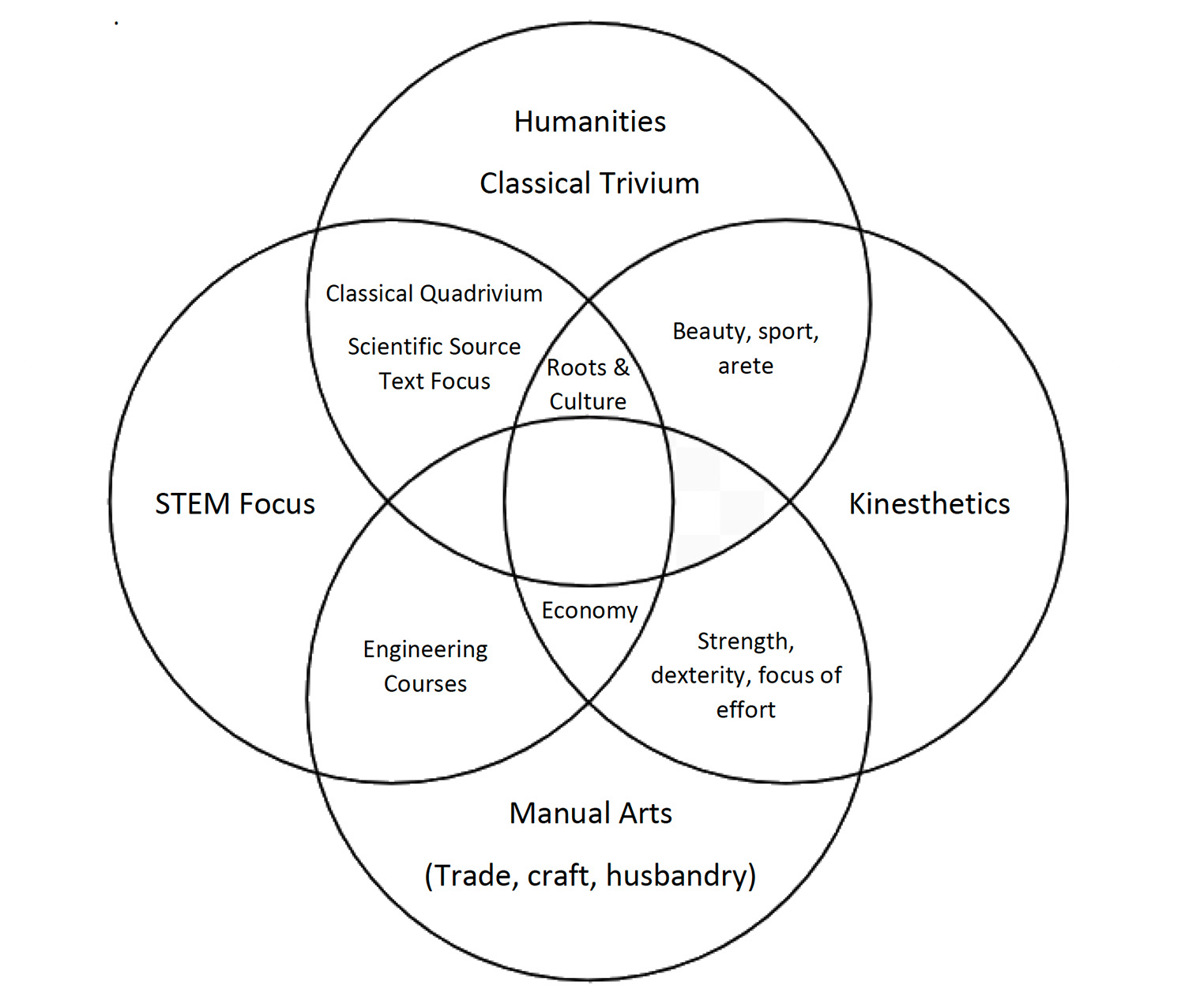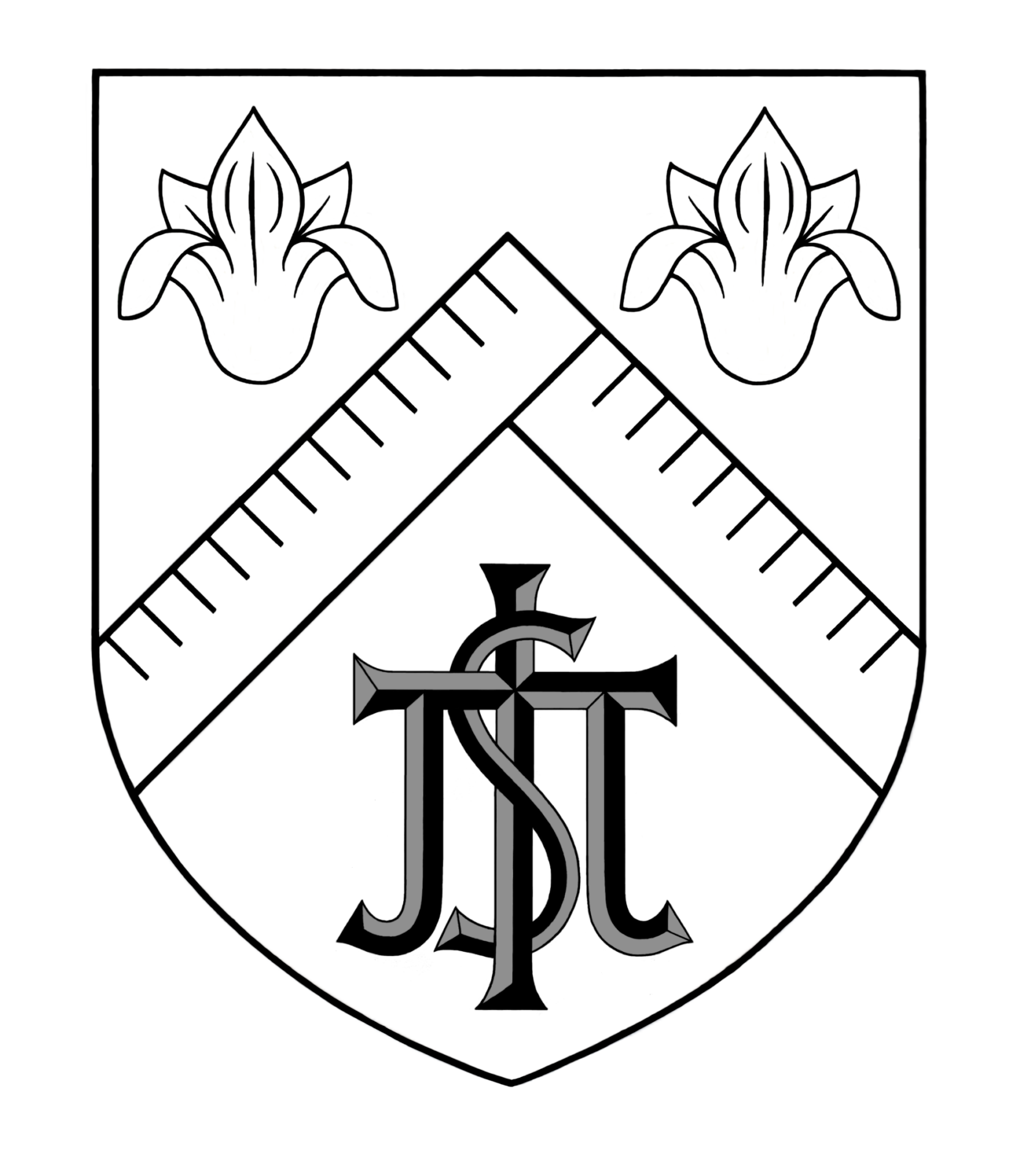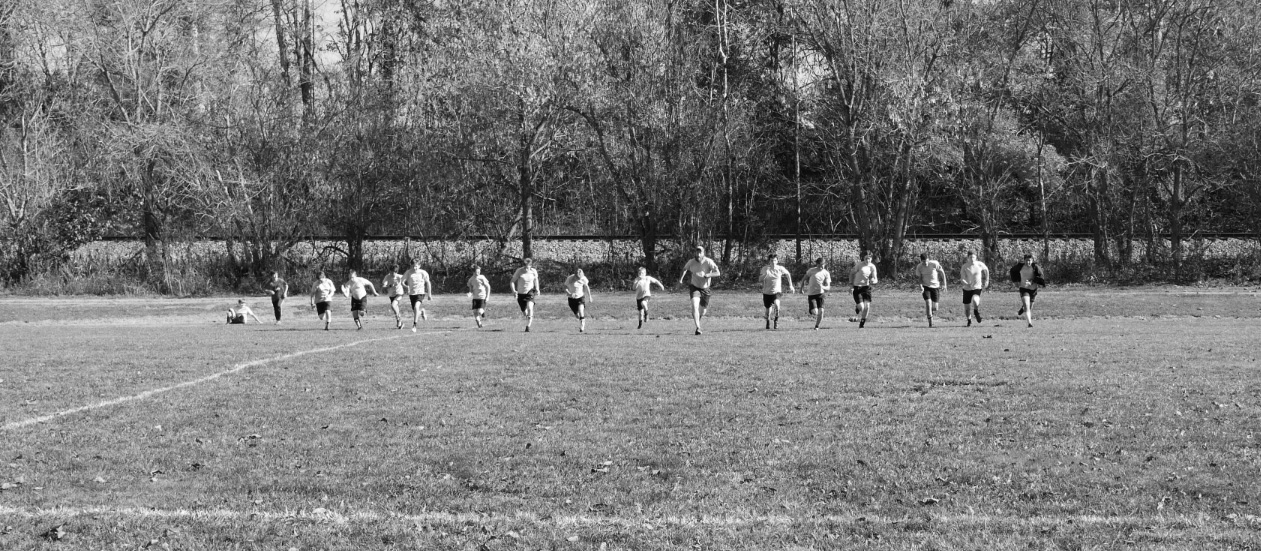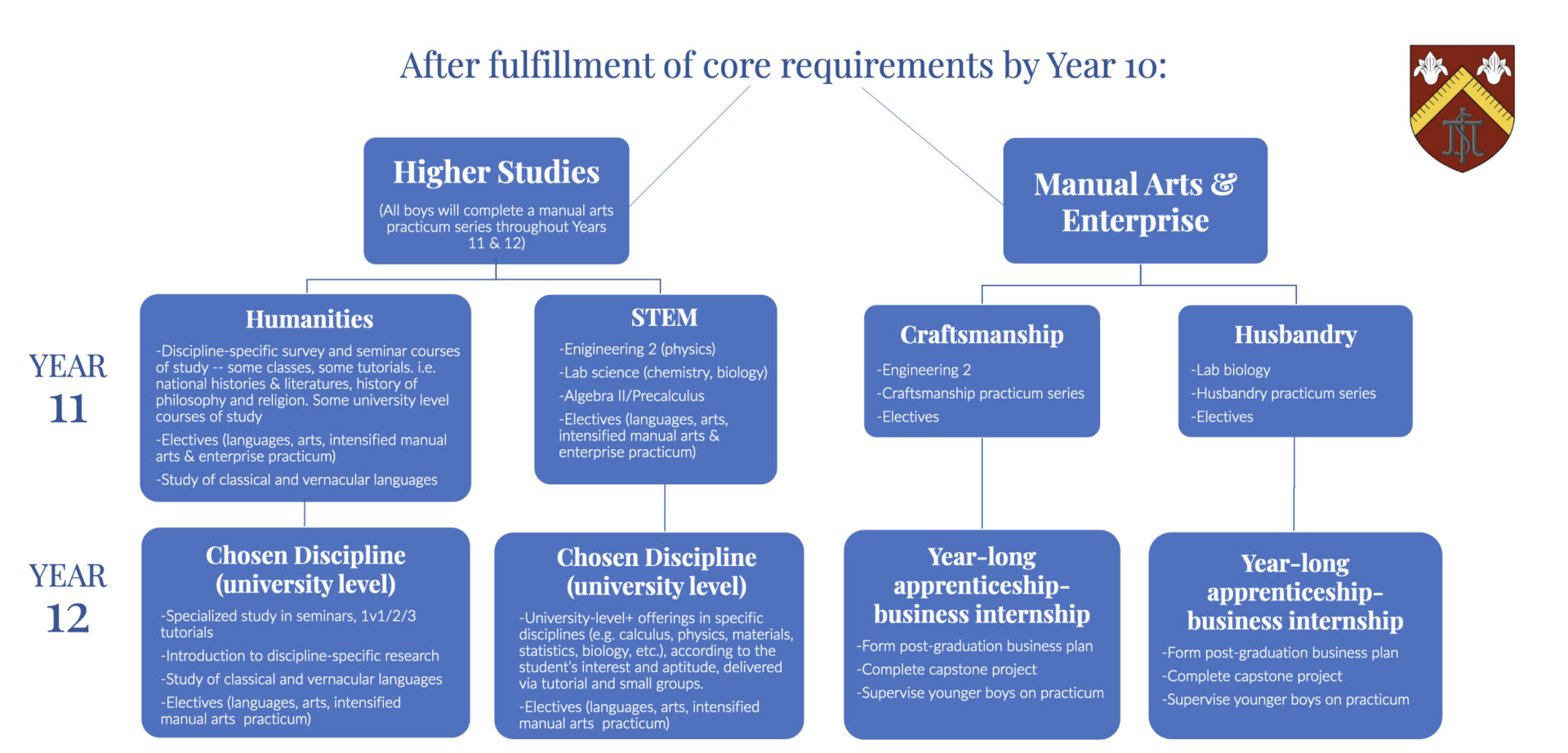Pedagogy & Curriculum
Pedagogy
Our pedagogical approach represents an utter commitment to fit with the nature of the human person. We take tradition as our teacher, and draw deeply on the classical, Catholic, and folk pedagogical streams which have come down to us, as well as the “Book of Nature” (St. Patrick) to bring us to an encounter with the Logos — and with it, good sense and “sanity” (John Senior). We take our commitment seriously enough to have structured our school’s institutional framework around it maximally facilitate our aim: the winning of young men over to the living of a good life.
This includes, for example, the offering of both the Manual Arts and Higher Studies tracks for finishing boys; an emphasis on physical fitness; and an exceptionally varied suite of teaching approaches employed on a weekly basis, e.g. 1-on-1 bi-weekly advising, small classes, dialogue-based team teaching followed by Q&A, Socratic class discussion, small group work, student presentation, hands-on learning such as machine building or repair work, and traditional classroom format. An additional approach which opens up to especially (but not only) 11th and 12th grade boys is the Oxford-style tutorial — by far the primary teaching format at Oxford (of course tutoring itself is of much more ancient and universal provenance than Oxford) — in which research-based written work meets high-level individualized discussion about their work on a weekly basis, and couches the learning process within a deeply human and relational basis of dialogue and exchange of ideas, and which relies on (as well as incentivizes) both parties to have “skin in the game”.

Curriculum
Core Program (Grades 7-10)
VA High School Standard Diploma Equivalent
History & Humanities
History, Philosophy, Literature, Religious studies

Year 1
Deep Antiquity: ~450 BC
Sample works: Homer’s Iliad, Plato’s Dialogues, The Epic of Atrahasis, Josephus’s Antiquities

Year 2
Classical Antiquity: ~450 BC – 500 AD
Sample works: Thucydides’ History of the Peloponnesian War, Caesar’s Gallic Wars, Livy’s Ab Urbe Condita; selections from Aristotle and Greek Drama

Year 3
Medieval: ~ 500 – 1450 AD
Sample works: Dante’s Divine Comedy; Geoffrey of Monmouth’s, The History of the Kings of Britain; selections from Aquinas; The Nibelungenlied; Icelandic Sagas

Year 4
Modern period: ~ 1450 AD
Sample works: Selections of St. John of the Cross, Shakespeare, Goethe, Dostoevsky, Dumas
Roots and Culture:
Approaches the Humanities from the standpoint of our particular place and time. This is a forum for boys to explore questions of culture and identity; their ancestry and multiple streams and sources of cultural heritage, and the American experience.
Sample works: The Last of the Mohicans; American and European art history; Zulu; selected folk oral and material culture
Economy:
A study of this virtue, which is a part of prudence. Principles of management. Preparation for real life. Includes a module on personal finance for finishing boys in Years 11-12.
Sample works: Xenophon’s Oeconomicus; Columella’s De Re Rustica; selections from Plutarch’s Lives; selected studies of military campaigns, political campaigns, and expeditions
Latin and Vernacular Languages:
Four years of an exposure-based approach to Latin which integrates study of and in the language with both the humanities curriculum and a liturgical context. Familiarization is prioritized over a systematic approach, and includes translations and readings of primary texts, memorization, and increasing movement towards a spoken component in step with skill levels. Intensive study is incorporated for those specializing in Humanities in Years 11-12, and/or on an elective basis. Study of vernacular language, e.g. German, Spanish, French, and/or Greek, will be incorporated in specialization in Humanities in Years 11 and 12, and/or on an elective basis.
Science

Year 1
Physical Science

Year 2
Life Science

Year 3
Engineering I

Year 4
Engineering II* and/or Lab Science*
* Not required for students not specializing in something other than STEM or craftsmanship
Mathematics

Year 1
Pre-Algebra

Year 2
Algebra

Year 3
Geometry

Year 4
Algebra II*
* Not required for students not specializing in something other than STEM or craftsmanship
Physical Fitness & Sport

Our approach is informed by a classical and humanistic ideal of fitness and sport — that physical health and vitality, including a certain enjoyment and basic competency in sport — are parts of the good life. All boys exercise with us twice daily — light stretching and movement in the morning, and sport or phyical training in the afternoon. We introduce basic familiarity with sports and competition to all of our boys, while encouraging them to, as they develop, pursue those which they most enjoy.
In team sports, SJJ currently fields MS and JV soccer teams in the fall, and MS and JV rugby teams in the Spring. These entail a few games per season against local teams. Participation in both of these is highly encouraged, and required for at least one. SJJ also offers cross-country, boxing (once/week, required for the core program), and skiing. Note that hard sparring/fighting is not required, though boxing training is.
Finishing Program (Grades 11 and 12)
Other Curriculum Courses
Craftsmanship: traditional building arts
Skills week: 3x/year at the end of term, a miscellaneous selection of non-standard special skills, e.g. land navigation, bushcraft, paddling, and knot-tying.
Basic tool, repair, and landscaping skills / parish service
Choir/music
Sport and Physical Training
NB: Boys are required to participate in a formal extra-curricular activity at least once weekly in two of the three terms. There is a great deal of flexibility here, from school-provided activities to pursuit of personal interests.

